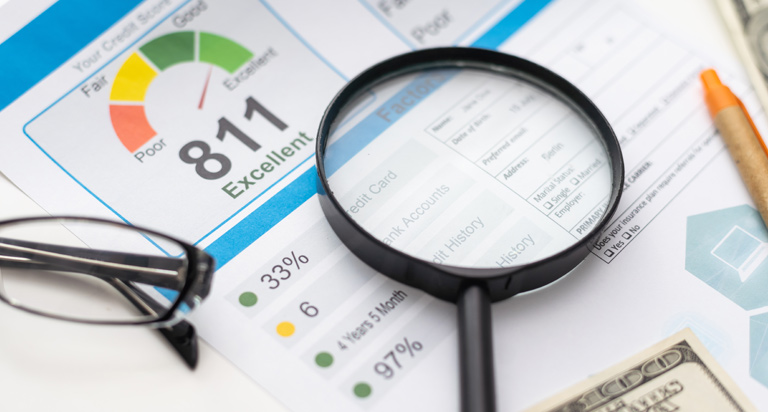A Guide to Credit Report Disputes


Highlights:
- Checking your credit reports often can help ensure information is accurate and complete.
- If information on your credit reports is inaccurate or incomplete, contact the creditor/lender.
- You can also file a free dispute with the three nationwide credit reporting agencies.
Your credit reports are a vital resource of your financial information. It's like a report card of how well you have managed your credit accounts. Potential lenders review your credit reports to decide if they should loan money to you. It's important to review your credit reports to make sure the information is accurate. If you find errors on your credit reports, contact the creditor/lender directly to straighten out the matter with the company. You can also file a dispute with the nationwide credit reporting agencies (NCRAs) —Equifax ®, Experian ® and TransUnion ®.
How to check information on your credit reports
Request your credit reports from the three NCRAs through annualcreditreport.com. Review the information on the credit reports. This includes: Accounts, Inquiries, Personal Information and Public Records. If you find information you believe is inaccurate or incomplete on one of your credit reports, check your credit reports from the other two NCRAs to see if the inaccurate or incomplete information appears there as well.
If you see errors, contact the creditor/lender first. You may be able to straighten out the matter with them. The company will report the updated information to the NCRAs. By law, lenders and creditors must update inaccurate or incomplete information with each NCRA they report to. You can also file a dispute for free with the 3 NCRAs. You can file a dispute with each NCRA online. At Equifax, you can create a free myEquifax™ account to file a dispute or check the status on one previously filed.
What information can I dispute on my credit reports?
You can dispute any of the following information on your Equifax credit report:
- Personal information, like your: name, addresses, Social Security number, or date of birth.
- Account information you believe is inaccurate or incomplete.
- If someone else's information is being reported on your credit reports. This is a mixed credit file and may include: addresses, identification information and credit accounts.
- If the credit reports list a debt twice.
- Information that may be the result of fraud or identity theft. This includes credit accounts on your credit reports that you don't recognize.
- Hard inquiries due to fraud or a mixed file.
- Bankruptcies
If you file a dispute, provide all of the relevant information and documents. The documents that you'll need to provide depends on what information you may be disputing. Give details about why you believe there is an error with the information.
What should I expect after filing a dispute?
When reviewing your dispute, if we are able to make changes to your credit report based on the information you provided, we will do so. If we can't resolve your dispute, then it is sent to the company that reported the information so that they can look into it. If the company determines that an error occurred, they should update the information reporting to Equifax.
You will receive the results of the dispute investigation within 30 days. If the result of the investigation finds that the information is accurate, it will remain on your credit reports. If you still believe the information is inaccurate or incomplete, and you have additional information that can help support your dispute, you can file your dispute again. You will need to include new or additional relevant information that was not included in your prior dispute. It's important to remember that disputing information with one NCRA may not impact information on credit reports from the other two.
You can also add a Consumer Statement to your credit report that describes an explanation for why you believe something is being reported incorrectly.
How to manage my Equifax credit report
Monitoring your Equifax credit report can help you find errors and unrecognized accounts or credit inquiries that could indicate identity theft.



